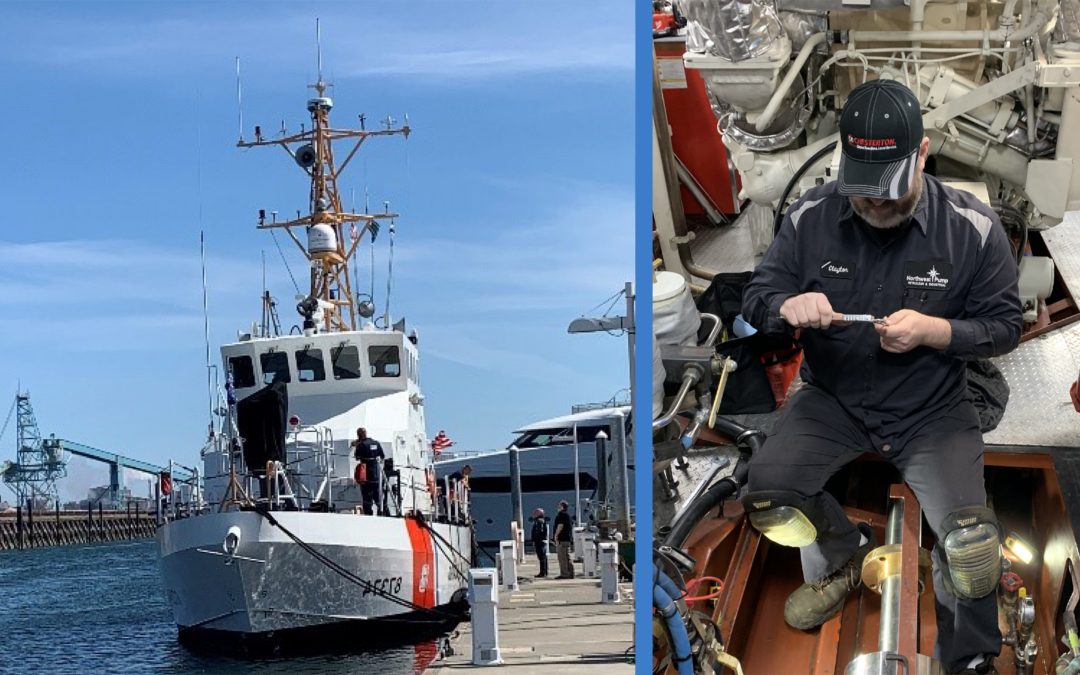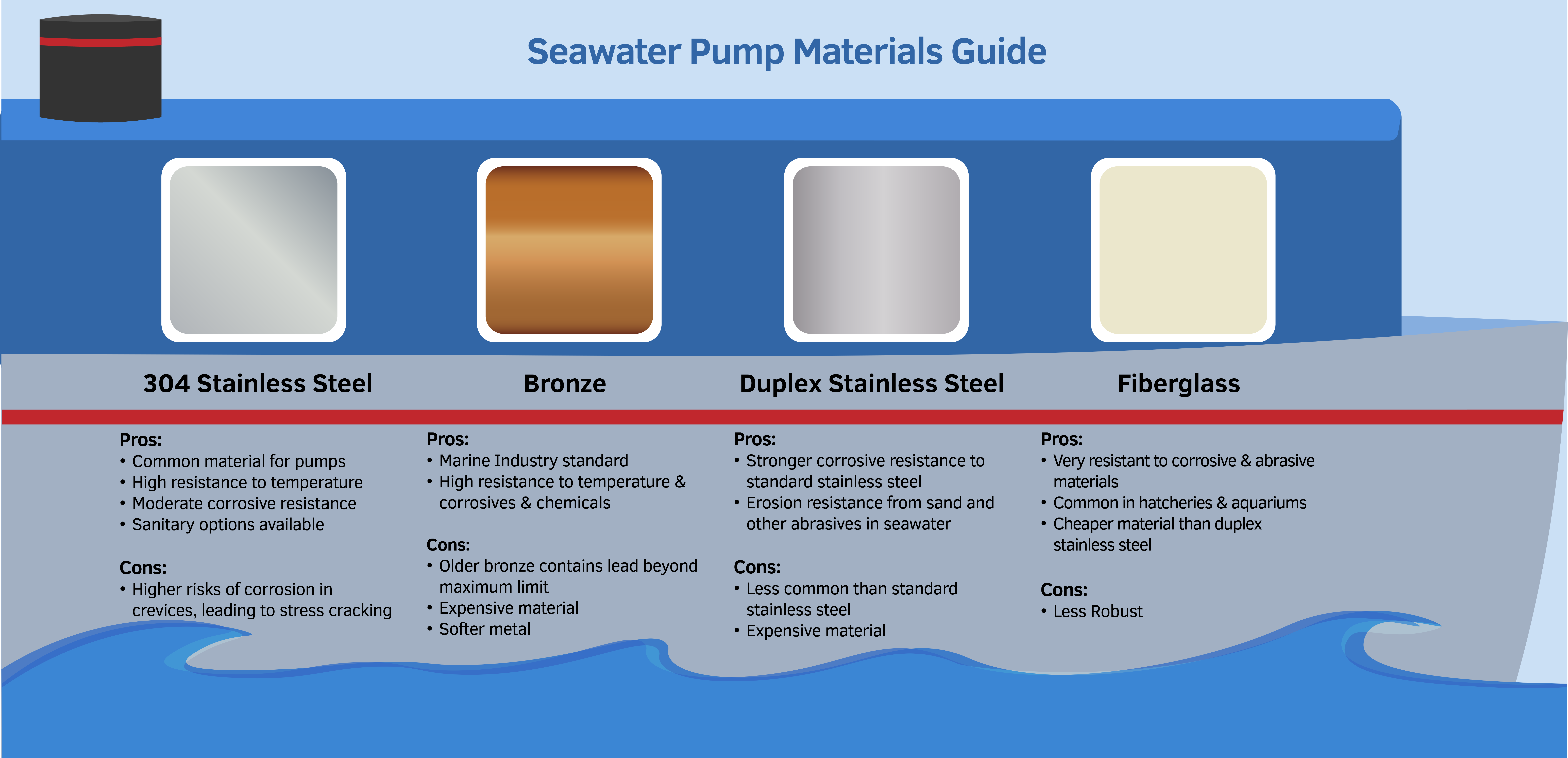The chemical properties in seawater make finding the right pump more difficult than when pumping with fresh water. Not only do these pumps have to withstand the damage from floating sand, but saltwater corrodes the metals commonly used in pump manufacturing. When looking for pumps for marine applications, especially at sea, there are certain materials that prevent rust and other damage. Read more to see what our team thinks are the best seawater pump material options.
Ideal Characteristics for Seawater Pump Material
The key quality in looking for a seawater pump is how resistant the materials of construction are to corrosive material. The amount of salt present in seawater corrodes metal five times faster than fresh water. Salt that is present in the air, corrodes metal ten times faster than that. This is due to the chemical properties of salt in the water; ions float freely in salt water, and these ions then force metals into a more neutral (or corroded) state. In a similar vein, floating sand in the water poses a threat of eroding the wetted interiors of pumps- especially in high-velocity applications.
In addition to corrosion resistance, the right material should also be able to handle fluctuating temperatures, especially for heating & cooling applications onboard. Submarines or other submersible applications will also require materials strong enough to withstand stress from high-pressure usage. Another characteristic of a good seawater pump material is how durable it is. Being out at sea limits the tools available to repair broken pumps, and removes the opportunity to take these pumps to the nearest repair shop until after the ship is docked.
Bronze Pumps
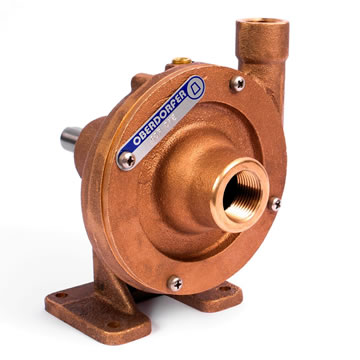
Pro: Bronze material is the Marine industry standard for seawater pumps. This material is corrosive-resistant and works well with fluctuations in water temperature. These properties make bronze an excellent choice for either bilge pumps or onboard heating & cooling pumps.
Con: While bronze pumps are popular for marine applications, this material does not have the same strength as stainless steel or other harder metals. Because of this weakness, a pump made out of bronze will be less durable than a pump made of cast iron, steel, or other metals. Additionally, bronze is more expensive than other seawater pump materials.
Oberdorfer & MP Pump specializes in bronze pumps for marine & heavy-duty chemical applications. Oberdorfer offers gear & centrifugal pump options, while MP offers its bronze pumps in centrifugal styles only.
304 and 316 Stainless Steel
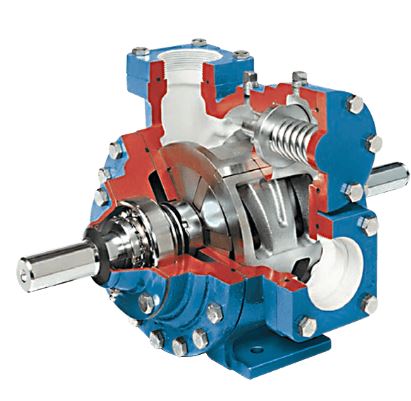
Pro: While there are many variations of stainless steel, the most common type used for pumps is either 304 or 316 stainless steel. These are common materials used in industrial pumps and are a popular choice in food manufacturing due to the surfaces’ clean-in-place capabilities. Stainless steel has excellent strength and withstands high-temperature applications very well. Another benefit to using stainless steel as a seawater pump material is the durability of the pump will last a long time when compared to other comparable materials.
Con: The drawback to using either version of stainless steel is the corrosion resistance. 304 and 316 are moderately resistant to corrosion, however, they are prone to ‘crevice’ corrosion, meaning in the small areas near gaskets and other hard-to-reach areas. This can also lead to an increased risk of stress cracking throughout the pump as well.
When it comes to Marine industry pumps, Blackmer offers top-of-the-line stainless steel options through its sliding vane, screw, and gear pumps. Blackmer’s main focus is providing military-grade solutions as opposed to other pump vendors. This brand is an excellent choice when looking for durability in a seawater pump. For heating and cooling applications as well as wastewater treatment onboard, Grundfos’s CR series pump is made entirely out of stainless steel for high-temperature resistance and efficient pumping.
Duplex Stainless Steel (CD4MCu)
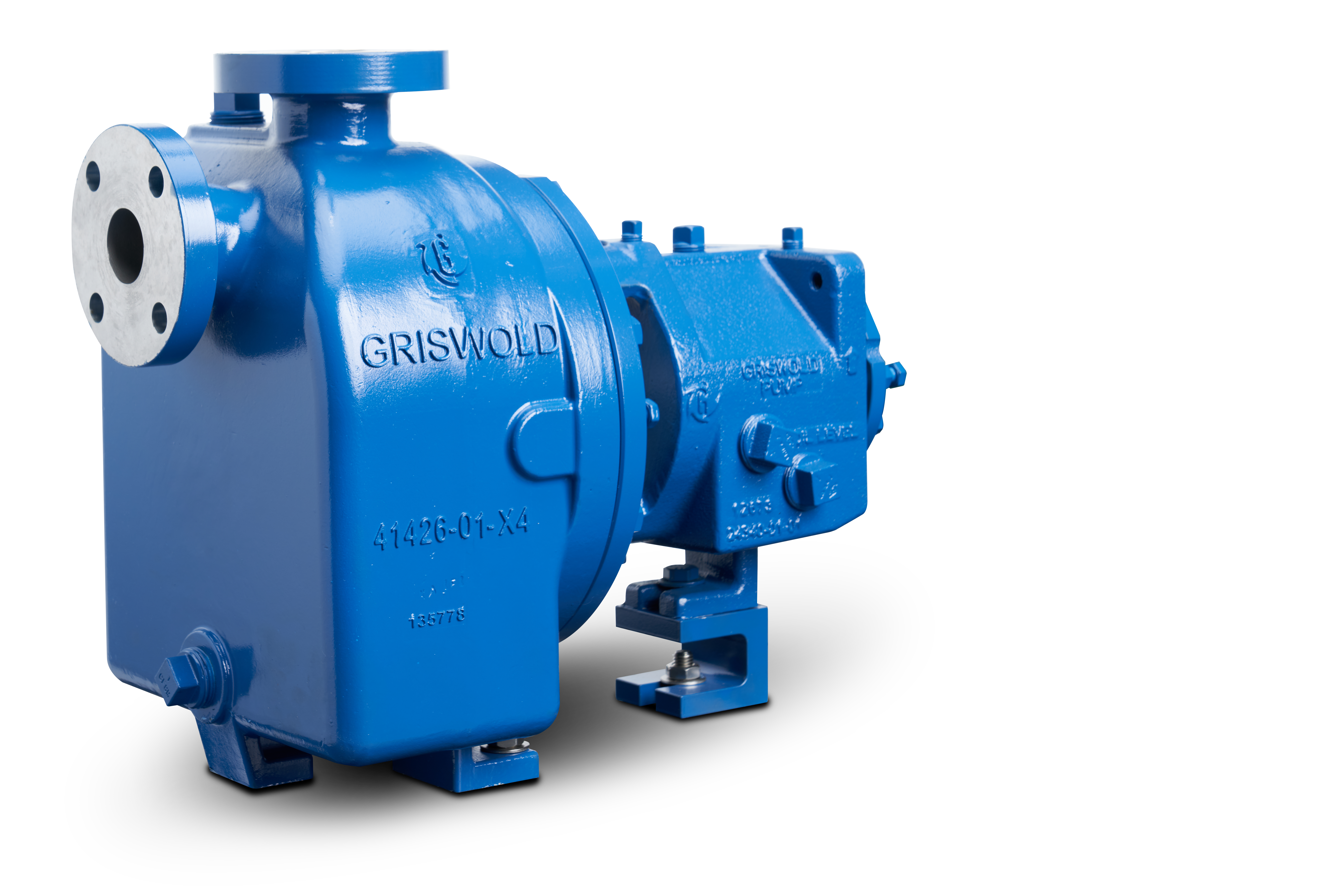
Pro: While 304 or 316 is the most common version of stainless steel, duplex stainless steel is another variation that offers better corrosive resistance than other types of steel. The difference between the two is 304 steel contains 18% chromium and 8% nickel with a maximum of .08% carbon. Duplex stainless steel, also referred to as CD4MCu, contains approximately 25% chromium, 5% nickel, and .04% carbon; it also includes copper, manganese, and silicon. The result is higher corrosion resistance & more durable material when compared to 304 or 316 stainless steel.
Con: The biggest drawback to choosing duplex stainless steel versus a 304 stainless steel is the price associated with the material.
Blackmer offers CD4MCu options for its centrifugal pumps. Griswold’s 811SP series pumps also offer CD4MCu material rather than standard stainless steel such as the 811 series.
Fiberglass
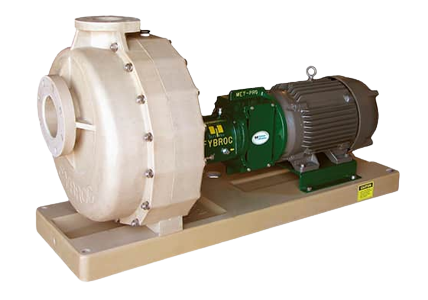
Pro: The last option for seawater pump material we offer is the non-metallic fiberglass option. Fiberglass is an excellent choice for corrosive substances like seawater or chemical applications. Fybroc specializes in making fiberglass-reinforced polymer (FRP) pumps, and they are a popular choice for fisheries and aquariums.
Con: The main drawback of using fiberglass as opposed to other seawater pump materials is that fiberglass is more fragile than metals like stainless steel or even bronze.
Next Steps
Our Industrial sales team can help you find the exact pump for your ship’s needs, use the “Contact Us” button below to get started or chat with us in person at Pacific Marine Expo through November 8-10th at the Lumen Event Center in Seattle. For repairs on your current seawater pumping equipment, use the “Request Service” button.

